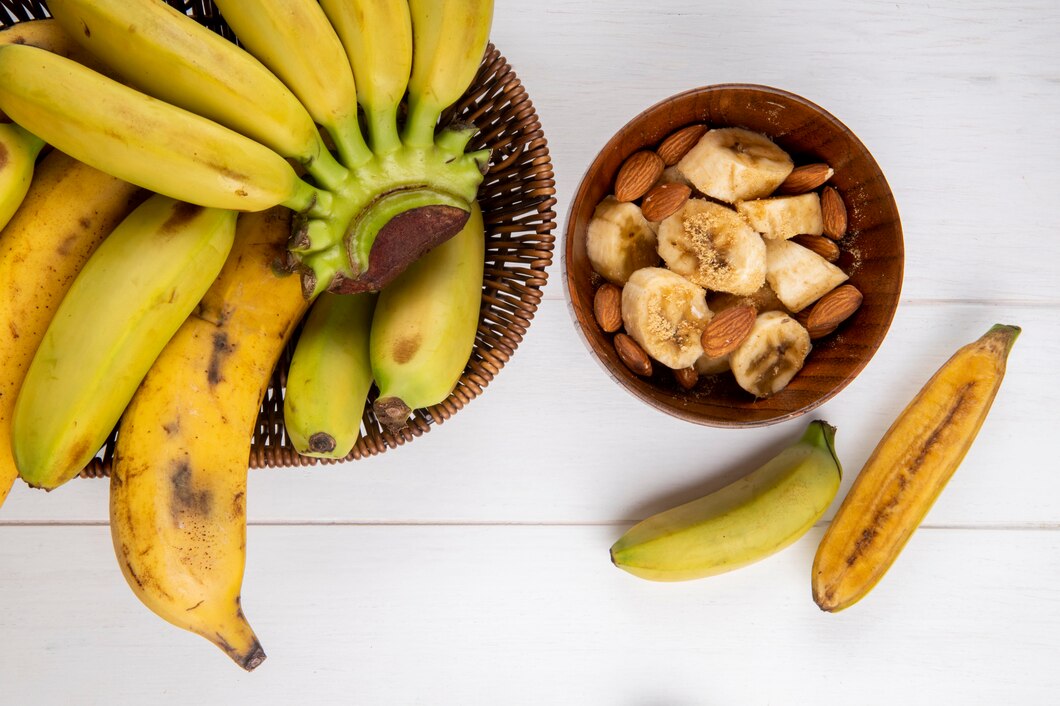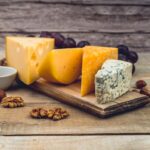Caffeine is a common go-to for a quick energy boost, but its stimulating effects can interfere with sleep, especially when consumed later in the day. For those looking to improve their sleep quality by reducing caffeine intake, several food alternatives can provide energy and other health benefits without disrupting your rest. Here are five foods you can substitute for caffeine to promote better sleep.
1. Almonds
Why They Work:
Almonds are a great source of magnesium, which plays a crucial role in promoting sleep and muscle relaxation. They also contain protein and healthy fats that provide a steady release of energy, helping you stay alert during the day without the need for caffeine.
How to Use:
- Snack: Eat a handful of almonds as a mid-morning or afternoon snack.
- Smoothies: Add a tablespoon of almond butter to your morning smoothie for a protein boost.
- Salads: Sprinkle slivered almonds on salads for added crunch and nutrition.
2. Bananas
Why They Work:
Bananas are rich in potassium and magnesium, which help relax muscles and promote restful sleep. They also contain tryptophan, an amino acid that converts to serotonin and melatonin, key hormones for regulating sleep.
How to Use:
- Breakfast: Add sliced bananas to your oatmeal or yogurt.
- Snacks: Enjoy a banana with a small amount of nut butter for a balanced snack.
- Desserts: Freeze bananas and blend them to make a healthy, creamy dessert.
3. Oats
Why They Work:
Oats are a complex carbohydrate that provides a slow release of energy, helping to stabilize blood sugar levels throughout the day. They also contain melatonin and serotonin, which can aid in sleep regulation.
How to Use:
- Breakfast: Enjoy a bowl of oatmeal with fresh fruits and nuts.
- Smoothies: Blend cooked oats into your smoothies for added texture and nutrients.
- Baking: Use oats in baked goods like muffins or energy bars.
4. Pumpkin Seeds
Why They Work:
Pumpkin seeds are a rich source of magnesium and zinc, both of which are important for sleep regulation. They also contain tryptophan, which can help increase the production of serotonin and melatonin.
How to Use:
- Snacks: Eat a handful of roasted pumpkin seeds as a snack.
- Salads: Add pumpkin seeds to salads for extra crunch and nutrition.
- Baking: Include pumpkin seeds in your bread or muffin recipes.
5. Cherries
Why They Work:
Cherries, particularly tart cherries, are one of the few natural sources of melatonin. Consuming cherries can help regulate your sleep-wake cycle and improve sleep quality.
How to Use:
- Snacks: Eat fresh cherries or dried tart cherries as a snack.
- Juice: Drink a small glass of tart cherry juice in the evening.
- Desserts: Use cherries in desserts like yogurt parfaits or fruit salads.
Additional Tips for Better Sleep
- Stay Hydrated: Drink plenty of water throughout the day, but limit fluid intake close to bedtime to avoid nighttime awakenings.
- Balanced Diet: Maintain a balanced diet rich in fruits, vegetables, lean proteins, and whole grains to support overall health and better sleep.
- Regular Sleep Schedule: Try to go to bed and wake up at the same time every day, even on weekends, to regulate your internal clock.
- Limit Screen Time: Reduce exposure to screens and blue light at least an hour before bed to help signal to your body that it’s time to wind down.
Replacing caffeine with foods that promote better sleep can significantly improve your sleep quality and overall health. Almonds, bananas, oats, pumpkin seeds, and cherries are excellent alternatives that provide sustained energy and support restful sleep. Incorporate these foods into your daily diet and follow healthy sleep practices to enhance your nighttime rest and daytime alertness.








